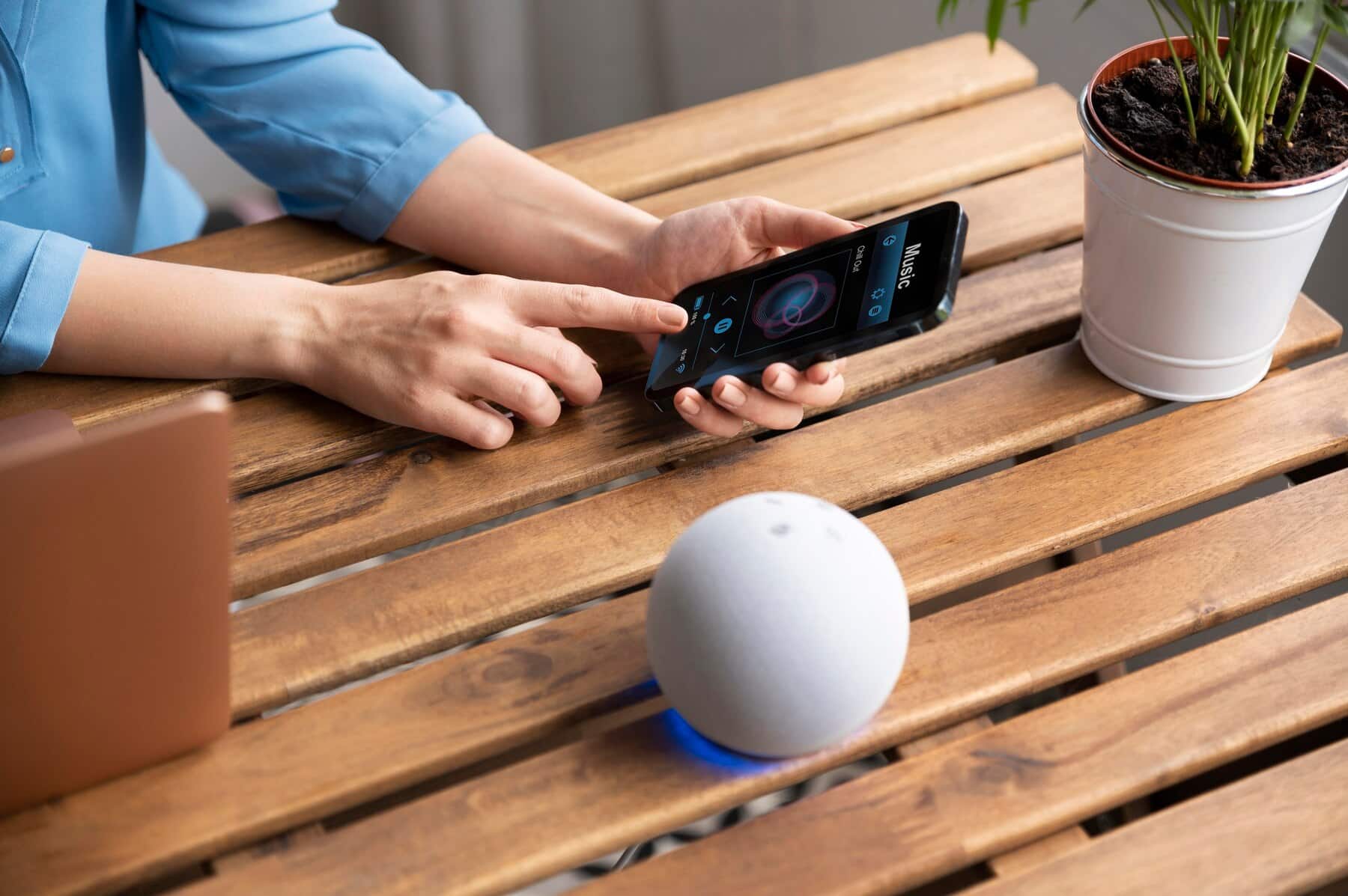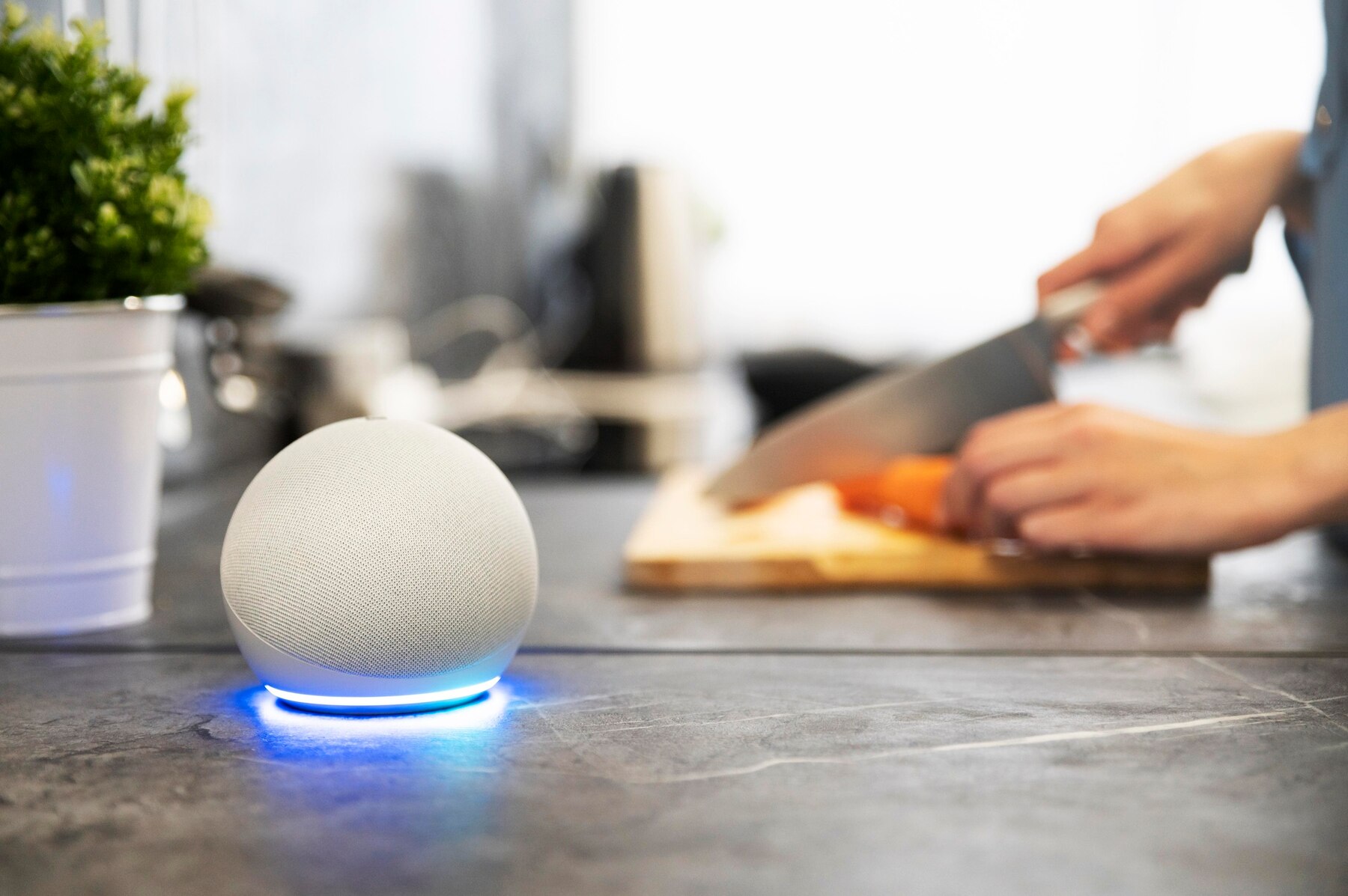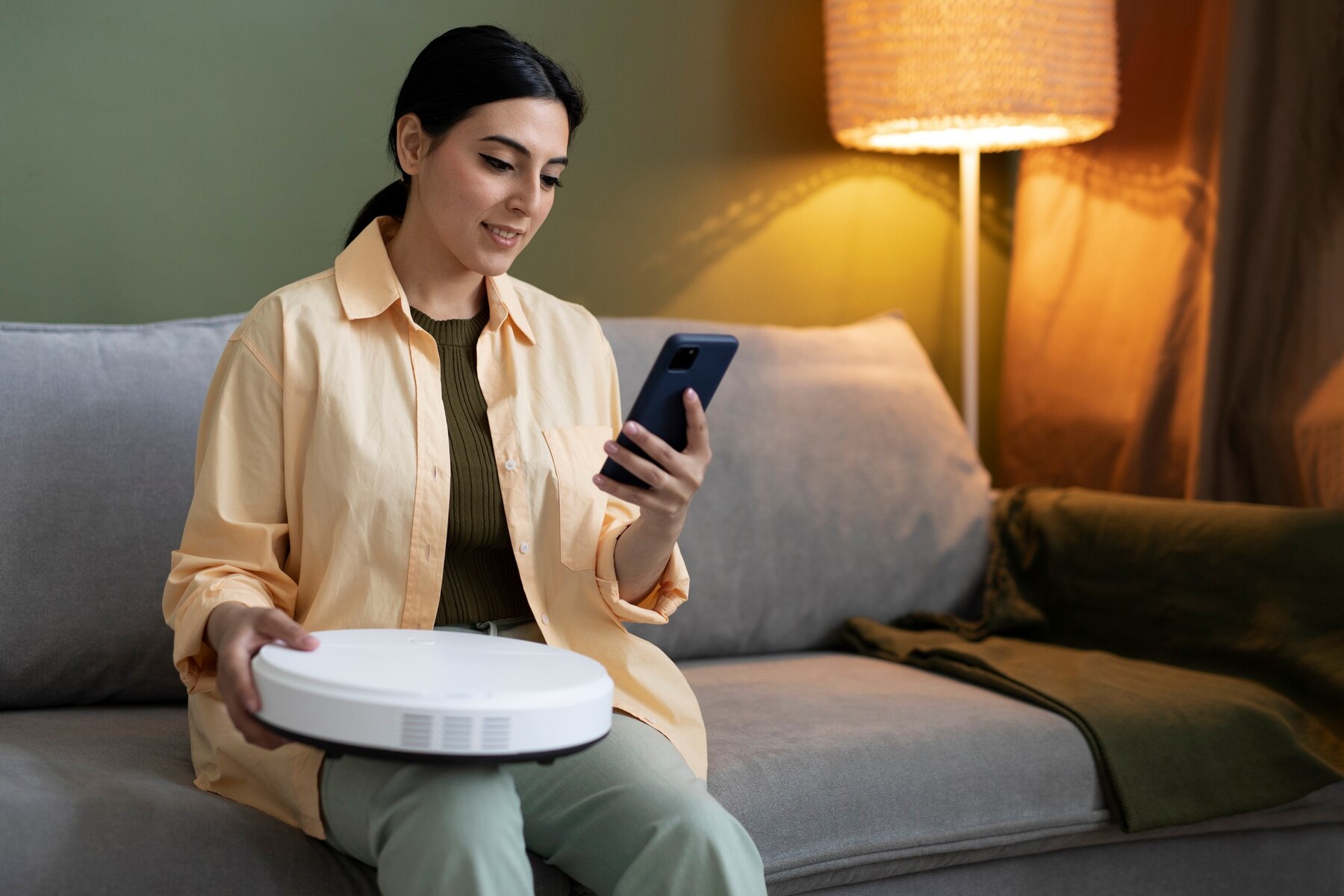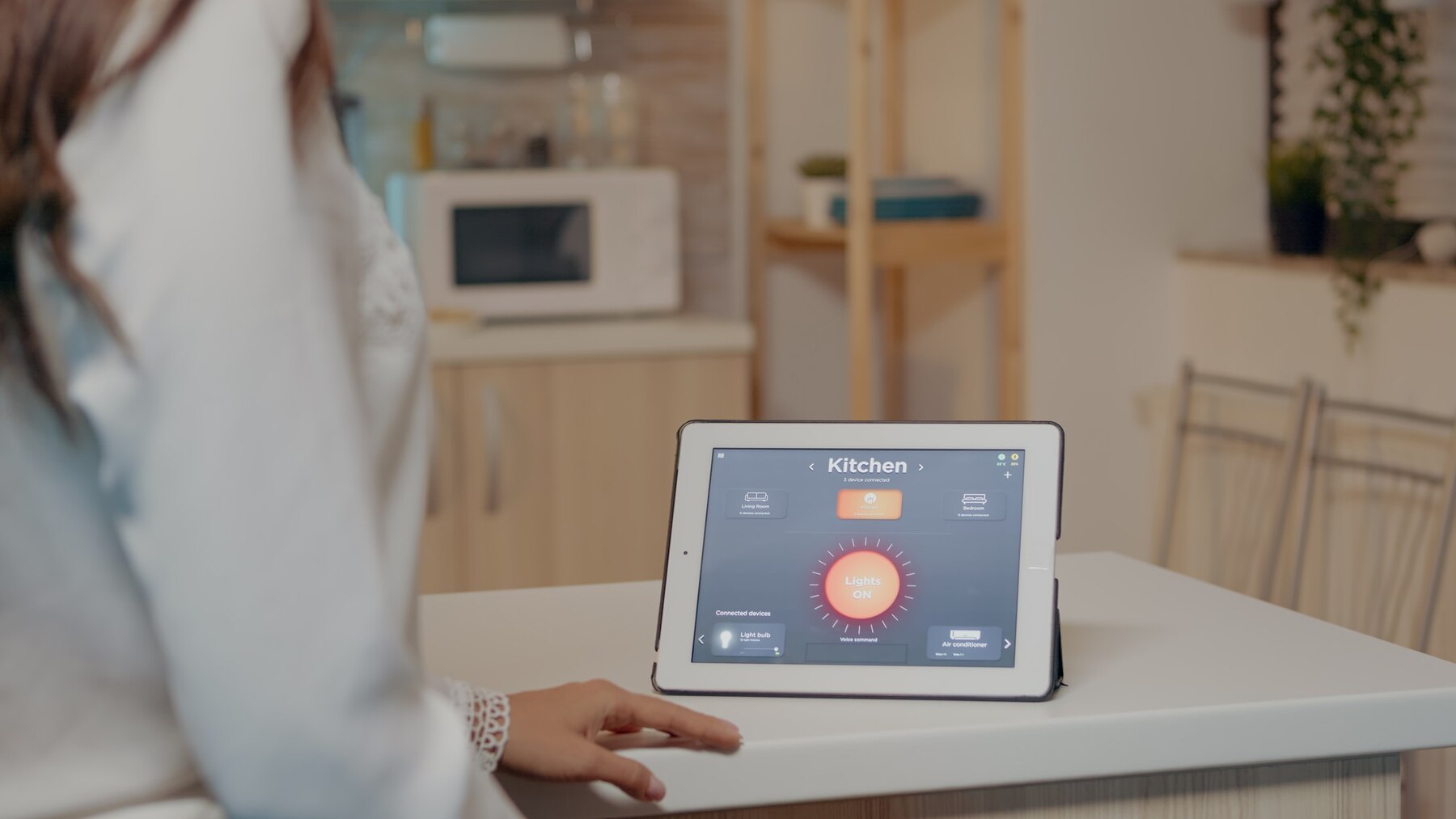
How Smart Home Assistants Are Transforming Daily Life
In recent years, smart home assistants have moved from being a futuristic concept to an essential part of modern living. These voice-controlled gadgets are becoming more integrated into our homes, helping us manage daily tasks, enhance convenience, and improve energy efficiency. From controlling lights and thermostats to providing entertainment and offering reminders, AI home technology has revolutionised the way we interact with our living spaces.
But how exactly are these devices transforming our daily lives? What makes smart home assistants so crucial in the modern world, and how do they function to make life easier and more connected? In this article, we’ll explore the best smart home assistants on the market, the many ways they enhance daily living, and the future of AI home technology.

What Are Smart Home Assistants?
A smart home assistant is a voice-controlled device powered by artificial intelligence (AI) that allows you to interact with your home through simple voice commands. These devices can control other smart gadgets within your home, such as lights, locks, thermostats, appliances, and security systems, creating a seamless smart home ecosystem.
The most well-known smart assistants are:
- Amazon Alexa – Amazon’s voice assistant integrated into smart speakers, smart displays, and various devices.
- Google Assistant – Google’s AI assistant, available on smart speakers, smartphones, and a wide range of smart devices.
- Apple Siri – Apple’s voice assistant, primarily found on iPhones, iPads, and HomePod smart speakers.
- Microsoft Cortana – While primarily used in office settings, it can also be integrated into smart home devices for specific applications.
These devices are powered by natural language processing (NLP) and machine learning, enabling them to understand and respond to spoken commands, learn user preferences, and improve over time.
How Smart Home Assistants Enhance Daily Life
1. Simplifying Routine Tasks
One of the primary benefits of smart home assistants is their ability to simplify everyday tasks. Whether it’s adjusting the thermostat, turning on lights, or setting timers, these devices make it easier to perform routine activities with just a simple voice command. This is especially useful for those with mobility challenges or anyone looking to reduce the number of manual tasks in their home.
Examples of Everyday Tasks:
- Voice-Controlled Lighting: Turn off the lights in your living room without getting up or use smart bulbs to create the perfect lighting scene.
- Temperature Control: Adjust the thermostat to your ideal temperature from the comfort of your bed or couch.
- Cooking Assistance: Set timers or get recipe suggestions while cooking hands-free.
2. Entertainment at Your Command
Smart home assistants are game-changers when it comes to entertainment. Whether you want to play music, stream a movie, or control your TV, these voice-controlled devices offer a level of convenience that traditional remotes and apps simply can’t match. They can connect with streaming platforms such as Spotify, Apple Music, YouTube, Netflix, and more, giving you instant access to your favourite content.
Entertainment Features:
- Music Playback: Ask your assistant to play specific songs, playlists, or genres across multiple smart speakers in the house.
- Voice-Controlled TV: Search for shows, change channels, or adjust the volume using only your voice.
- Home Cinema Control: With connected smart TVs or media centres, control lighting, screen brightness, and sound systems effortlessly.
3. Enhanced Home Security and Safety
Smart assistants can also play a significant role in enhancing your home’s security. By connecting to smart security cameras, locks, and alarms, these devices can keep your home safe while offering peace of mind. They can also alert you about suspicious activity, grant access to visitors remotely, or even simulate your presence when you’re away.

Security Features:
- Smart Doorbell Integration: View your front door’s video feed and speak with visitors via the smart assistant.
- Lock Control: Lock or unlock doors remotely through voice commands.
- Home Monitoring: Receive alerts when motion is detected or if your security system is triggered.
4. Streamlining Home Automation
The concept of home automation, or the ability to control multiple devices from a single interface, has become a reality with smart home assistants. Through these devices, you can create automated routines or “scenes” that execute a series of actions with just one command. For example, you could set a “Good Morning” routine that turns on your lights, starts the coffee maker, and reads you the weather report.
Automation Examples:
- Morning Routines: Automatically adjust the thermostat, open the blinds, and play your favourite news or podcast when you wake up.
- Night Mode: Set up a bedtime routine that turns off all lights, locks doors, and sets your security system.
- Energy Management: Program your devices to switch off when not in use to save energy.
5. Improving Communication and Connectivity
Smart home assistants serve as a hub for connecting various devices within your home. You can connect smart home assistants to your phone, tablets, and other gadgets, enabling seamless communication across devices. Additionally, many of these assistants offer hands-free calling or messaging features, allowing you to stay connected with friends, family, or colleagues.
Communication Features:
- Voice Calls and Messaging: Make phone calls or send messages using just your voice.
- Intercom System: Communicate with family members or roommates in different rooms by sending voice messages or announcements.
- Calendar and Reminders: Get reminders about appointments, meetings, and tasks without needing to check a calendar manually.
6. Personalised Experiences with AI
One of the standout features of smart home assistants is their ability to learn and adapt to your preferences. As you interact with these devices over time, they gather data to personalise responses and recommendations. Whether it’s remembering your favourite music, making tailored suggestions for products, or adapting your home’s lighting preferences, AI home technology ensures that your experience is unique and increasingly efficient.
Personalisation Features:
- Customised Playlists: Create music playlists based on your listening habits.
- Smart Recommendations: Receive suggestions for restaurants, products, or activities based on your preferences.
- Context-Aware Responses: The assistant can provide more accurate answers or services depending on the time of day, location, or previous interactions.
The Best Smart Home Assistants in 2025
The market for smart home assistants has expanded greatly in recent years, offering a wide range of devices with unique features and functionalities. If you’re considering adding a voice-controlled gadget to your home, here are some of the best options currently available:
1. Amazon Echo (4th Gen)
The Amazon Echo has become one of the most popular smart home assistants due to its affordability, versatility, and compatibility with a wide range of smart home devices. It integrates seamlessly with Amazon Alexa, enabling you to control smart devices, play music, set reminders, and more.
Key Features:
- Powerful sound quality for music and entertainment
- Built-in Zigbee hub for smart device compatibility
- Supports Alexa voice control and Amazon services
2. Google Nest Audio
The Google Nest Audio offers excellent sound quality and powerful voice recognition, making it an ideal choice for music lovers and those who want a seamless Google ecosystem in their home. Integrated with Google Assistant, it allows for voice commands, smart home automation, and much more.

Key Features:
- Superior audio quality for music streaming
- Works with all Google Assistant-enabled devices
- Integrated Google services for smooth connectivity
3. Apple HomePod Mini
Apple’s HomePod Mini brings the convenience of Siri to your home in a compact, high-quality design. It’s perfect for those who are already using Apple products, as it integrates seamlessly into the Apple ecosystem.
Key Features:
- Crystal-clear sound quality
- Deep integration with Apple Music, HomeKit, and Siri
- Ideal for Apple users with smart home setups
4. Sonos One (Gen 2)
The Sonos One combines excellent sound quality with smart assistant functionality. You can choose between Amazon Alexa or Google Assistant to control your home, making it a versatile option for those seeking a premium audio experience along with smart home integration.
Key Features:
- Stunning sound performance
- Integration with Alexa or Google Assistant
- Compatible with all major streaming services
The Future of AI Home Technology
Looking ahead, the future of AI home technology seems incredibly promising. As smart home assistants continue to evolve, we can expect even more advanced features, increased automation, and greater integration with IoT devices.
1. Greater Integration with IoT
As more devices become part of the Internet of Things (IoT), smart home assistants will play a central role in controlling and automating every aspect of our homes. Expect more interconnected devices that seamlessly communicate with one another, creating a more unified and intelligent home experience.
2. Advanced AI Capabilities
The future will likely bring even smarter assistants, capable of making more complex decisions and adapting better to individual user needs. With enhanced natural language processing, assistants will be able to understand more nuanced commands and provide even more personalised interactions.
3. Improved Privacy and Security
As smart home assistants become more integrated into our daily lives, privacy and security will become a key focus. Future developments may include enhanced encryption, more control over data sharing, and better safeguards to protect user information.
The Smart Future of Home Living
Smart home assistants have already begun to transform the way we live, making our homes more convenient, secure, and connected. From voice-controlled gadgets that simplify daily tasks to AI home technology that offers personalised experiences, these devices are quickly becoming a central part of the modern home.
As technology continues to improve, we can expect smart home assistants to become even more integrated into our lives, offering smarter automation, better security, and even greater convenience. If you haven’t already embraced this technology, now is the perfect time to explore how these devices can make your home smarter, more efficient, and more enjoyable to live in.
